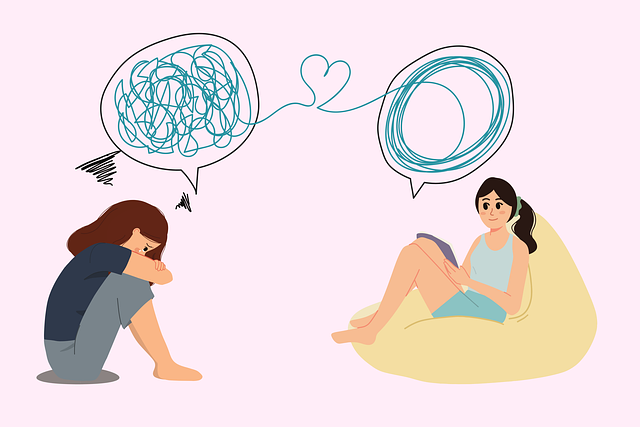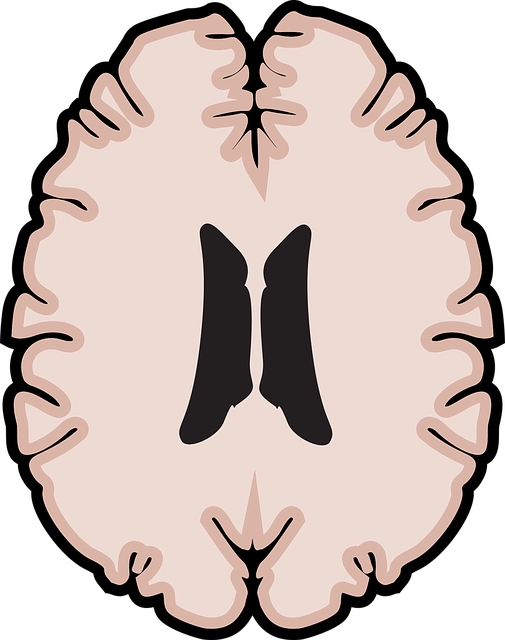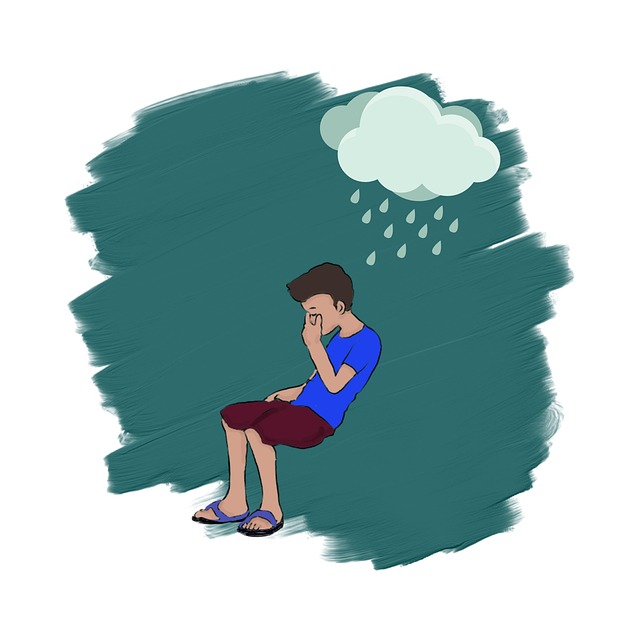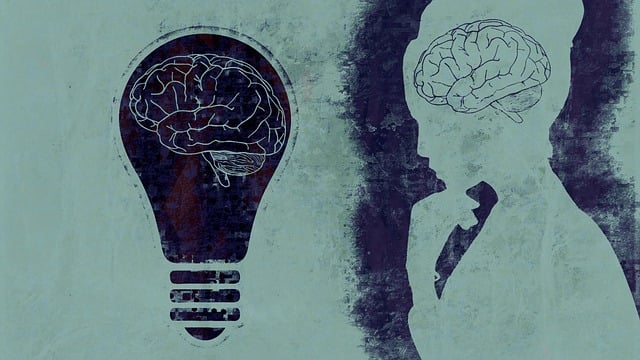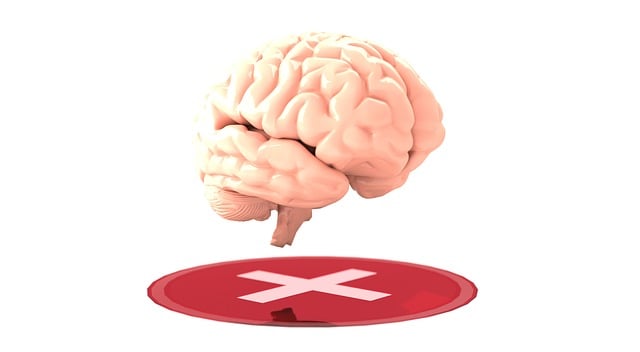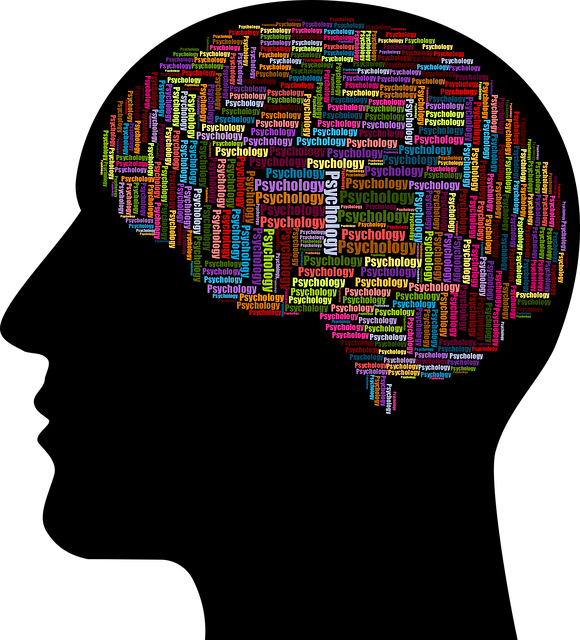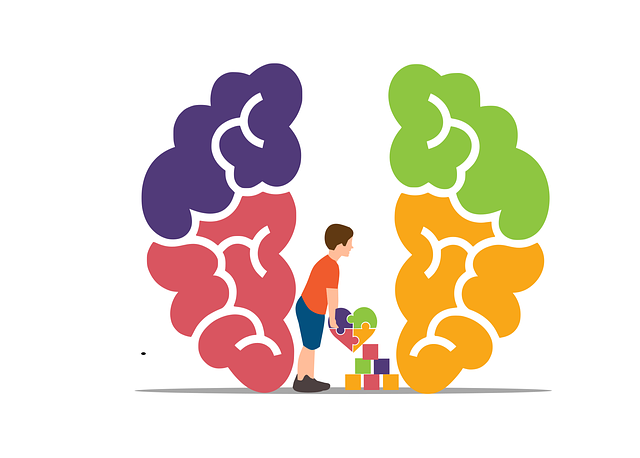Resilience, Flexibility, and Mindfulness (RFM) techniques are an effective and holistic approach to therapy for children depression, equipping young minds with emotional balance, adaptability, and coping mechanisms. By integrating mindfulness meditation, cognitive reframing, and stress management, RFM enhances mental wellness, prevents depression symptoms, and fosters lifelong emotion management skills. This tailored, evidence-based strategy, including creative outlets and confidence-building, improves therapy outcomes for children, shifting the narrative from struggle to empowerment. Regular practice of RFM exercises leads to lasting resilience, improved mental health outcomes, and enhanced overall well-being, with applications extending to adult self-care routines.
Resilience is a powerful tool in fostering mental well-being, especially for children dealing with depression. This article explores the concept of RFM (Resilience, Flexibility, and Mastery) and its potential impact on young minds. We delve into identifying suitable resilience-building exercises, their implementation in therapeutic settings, and measuring success. By understanding RFM, professionals can enhance traditional therapy for children with depression, providing them with effective coping strategies for a more fulfilling life.
- Understanding RFM and Its Impact on Children's Mental Health
- Identifying Resilience Building Exercises for Young Minds
- Implementing RFM in a Therapeutic Setting
- Measuring Success and Long-Term Benefits of RFM Exercise
Understanding RFM and Its Impact on Children's Mental Health

Understanding RFM (Resilience, Flexibility, and Mindfulness) is pivotal in shaping the mental health landscape for children. This holistic approach recognizes that fostering resilience empowers kids to navigate life’s challenges with adaptability and emotional balance. By integrating practices like mindfulness meditation, cognitive reframing, and stress management techniques into their daily routines, children can develop effective coping mechanisms. This proactive strategy not only prevents symptoms of therapy for children depression but also promotes overall well-being.
In the context of risk management planning for mental health professionals, RFM offers a powerful toolkit. Enhancing emotional intelligence through RFM allows practitioners to guide young clients toward better understanding and managing their emotions. This, in turn, contributes to improved mental health outcomes, ensuring that children are equipped with lifelong skills to cope with stress, anxiety, and potential depression.
Identifying Resilience Building Exercises for Young Minds

Identifying appropriate resilience-building exercises for young minds is a nuanced task that requires understanding their unique needs and developmental stages. Children often face various challenges, including navigating social interactions, managing emotions, and coping with academic pressures. Therefore, Resilience, Flexibility, and Mindfulness (RFM) techniques tailored to their age groups can be instrumental in fostering mental wellness. These exercises should promote emotional regulation skills, enhance social skills training, and provide healthy coping mechanisms for stress and anxiety.
Therapy for children with depression or other mental health concerns often incorporates these RFM strategies. For instance, mindfulness practices like deep breathing exercises and meditation can help kids calm their minds and bodies, especially during moments of heightened emotion. Additionally, engaging in creative activities such as art therapy or music production can offer outlets for self-expression and emotional release, which are crucial components of mental wellness podcast series production.
Implementing RFM in a Therapeutic Setting

In a therapeutic setting, implementing RFM (Recovery-Focused Marketing) alongside compassion cultivation practices like Mindfulness Meditation and Confidence Boosting can dramatically enhance outcomes for children dealing with depression. These evidence-based strategies shift the focus from the struggle to recovery, resilience, and future potential. By fostering a safe, supportive environment where children learn mindfulness techniques and develop confidence, therapists create a powerful combination that not only alleviates symptoms but also empowers young minds to navigate life’s challenges.
The integration of RFM in therapy encourages children to view themselves as capable individuals with the ability to recover and grow. This perspective is cultivated through various exercises designed to strengthen resilience, promote self-compassion, and enhance coping skills. By combining these therapeutic approaches, mental health professionals can offer a holistic support system tailored to each child’s unique needs, ultimately helping them build lasting resilience against depression.
Measuring Success and Long-Term Benefits of RFM Exercise

Measuring success and understanding the long-term benefits of RFM (Resilience, Flexibility, and Mindfulness) exercises are crucial aspects of their implementation in therapy for children with depression. Through regular practice, children can develop a deeper sense of self-awareness and emotional regulation, enabling them to navigate challenging situations more effectively. This process is not merely about short-term relief but rather fostering long-lasting resilience that translates into improved mental health outcomes.
The success of RFM exercises extends beyond the therapy room, impacting various areas of a child’s life. By integrating mindfulness practices and cultivating emotional flexibility, children can enhance their ability to manage stress, prevent burnout, and maintain overall well-being. This is particularly relevant in addressing the growing concerns about burnout prevention strategies for healthcare providers, as these exercises can be adapted to support not only young patients but also adults seeking self-care routine development for better mental health. Effective RFM implementation contributes to a holistic approach to mental health care, offering sustainable solutions for stress reduction methods tailored to individual needs.
Resilience is a powerful tool for enhancing children’s mental health, especially in addressing issues like depression. By implementing RFM (Resilience-focused Mindfulness) exercises, therapists can create a supportive environment that encourages young minds to navigate challenges with strength and adaptability. This article has explored the benefits of RFM, offering insights into its impact on children’s well-being. Through structured activities and mindful practices, resilience building in therapy sessions fosters long-term mental toughness, enabling kids to thrive despite life’s ups and downs. By adopting these techniques, professionals can significantly contribute to a child’s journey towards better mental health and overall resilience.

